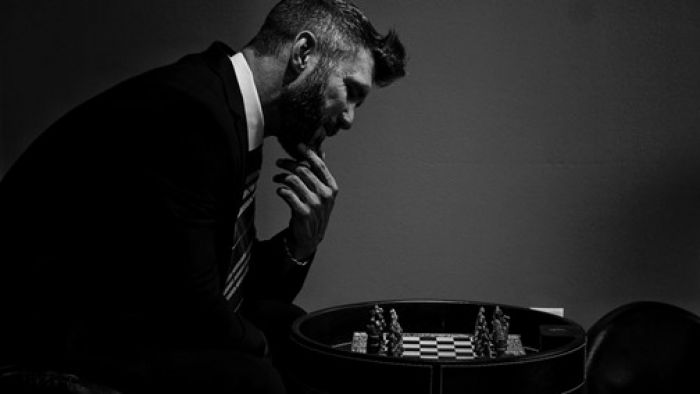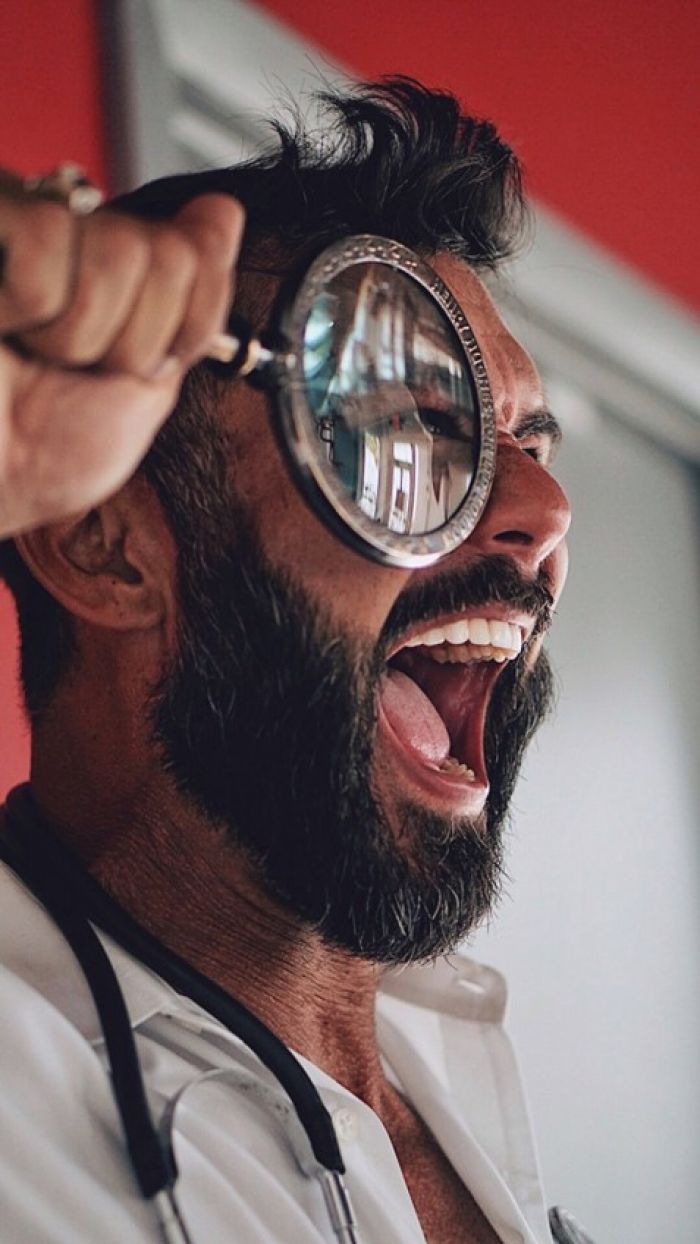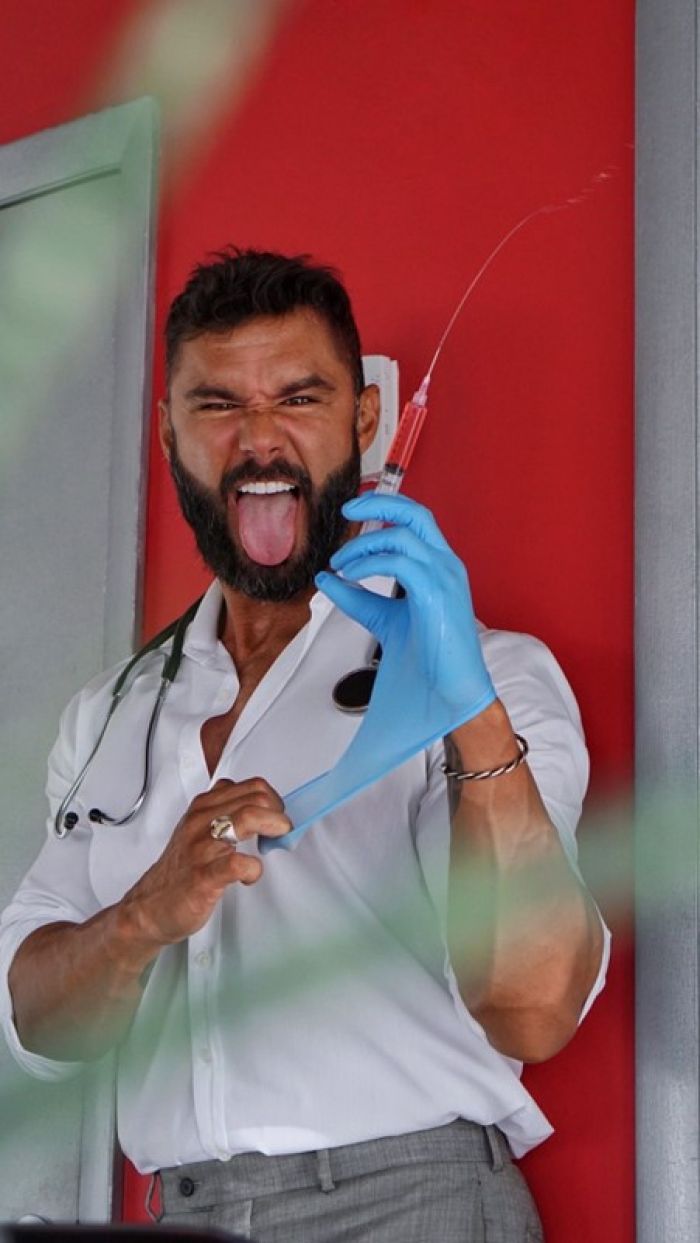
In recent years, testosterone therapy has taken a more mainstream and commercial turn, fueled by direct-to-consumer (DTC) medical companies, fly by night physicians and social media influencers. They have played a pivotal role in popularizing testosterone therapy not just as a medical treatment for diagnosed conditions but as a lifestyle choice for men seeking enhanced vitality, improved physical performance, and anti-aging benefits. Unfortunately, however, this surge in popularity has led to significant concerns regarding the appropriateness and safety of how these treatments are prescribed to the public along with who is doing the prescribing. By prioritizing accessibility and convenience over comprehensive medical evaluations, situations where individuals might receive testosterone therapy without a proper assessment poses many potential risks.
We spoke to Dr. Ivan Rusilko, founder of Lifestyle Medicine in Miami Beach, who has been a champion of customized testosterone programs for decades.
Interviewer: So I'm sitting here today with Dr. Ivan Rusilko, for an interview about the ins and outs of testosterone replacement. So I guess the first question I have for you Ivan is what's the initial steps someone should take when considering testosterone replacement therapy (TRT)?
Dr. Ivan Rusilko: The first step has gotta be diagnostic testing, no ifs ands or butts about it because it might not be testosterone that causes the issue. It could be 1000 different things that are causing the sexual dysfunction or low energy or depression or a poor physique. So before I prescribe testosterone to anyone, I need to know everything about them, more than God if you will. This is what enables me to confirm that it’s testosterone that they need and not something else. A lot of people think just because you're a man, you need to jack your testosterone up to absolutely ridiculous levels when actually treating an underactive thyroid or a toxic level of mercury is the culprit. It’s this kind of thought that leads to the side effects you hear plastered everywhere…not the hormones fault it's the uninformed medical providers who provided it. When things start going negatively for a new TRT patient, sadly, they are typically unprepared to self advocate. They may not know how to talk about or even identify the exact problem they are having. Typically these patients return back to the same uninformed provider likely leaving them even more frustrated and uninformed.
I: If someone were to come to you and say they did blood work and have low testosterone what is your first reaction?
IR: My first question would be was it your total or your free testosterone that is low? This is the most important differentiation to make in deciding the most effective way to treat someone with low T. Total testosterone measures that amount produced by the body while free testosterone measures the efficacy of what is produced and is what I consider the most important.
Then I would follow it up with what are your FSH/LH levels which help determine if the deficiency is being caused by the brain or the testicles. And finally all the other players that go into why you may be demonstrating signs of malaise. Things like estradiol, DHEA, IGF-1, Cortisol, CBC, PSA (for men), progesterone and thyroid. These are questions I'd say 95% of physicians prescribing testosterone have no clue about nor do they care to ask. Thinking your body is as simple as one hormone is extremely unrealistic. Knowing these other levels allows a physician to truly manage a patient's expectations along with preventing potential side effects that can come with crappy TRT therapy.
I: What sets you apart from other doctors when you consider testosterone replacement therapy?
IR: Because I lived and breathed testosterone at one point in my life when I was bodybuilding and during the Mr. USA competition years. Surprisingly I learned more about how to properly administer this hormone during these years than in medical school because in medical school they don't teach you anything about it. The most important thing I learned was not what it does, that's easy, but instead how to avoid side effects and how to properly come off of it. How to avoid estrogen or DHT overload, avoid thickening of the blood or worsening of a prostate… how not to castrate yourself when you start taking it. The majority of negative assumptions often dispersed in the media demonizing this hormone can be mitigated when it is prescribed properly.
A lot of physicians will just sit there and give this out like it's candy, which ends up with people feeling good for six months, but then and all of a sudden your dick doesn't work, you have acne, and you grow breasts. And then what? Go back to the idot that gave it to you to try and figure out how to fix it… good luck!
With me or other specialists in this field, yes it costs more but in the long run it is worth every penny as seldom do we have issues that arise and if we do then we know how to fix them. Testosterone therapy is not a $100 a month program you find some dickhead influencer promoting on instagram. It's an intricate balance of hormones that needs to be done properly to truly unlock all the benefits this hormone can bring to BOTH men and women.
I: So are you also saying that it's important to really follow up with bloodwork? If so, how often should a patient do bloodwork? What exactly are you looking for as they progress through their program?
IR: So yeah, bloodwork is the most important part as it serves as the reference point for both how to start treatment along with how to manage it properly. In my practice I have found myself fixing more people who have improperly been prescribed testosterone than I do starting them on a program. The sad thing is that it wasnt really testosterone that they needed in the first place. It's usually a mercury overload, adrenal fatigue or IGF-1 deficiency masquerading as low testosterone which have complete different treatments all together and can actually worsen with higher levels of testerone in the bloodstream that therapies bring.
If you do start TRT then testing frequently at the beginning is essential to ensure its behaving properly in the system. Let me be frank, doing testosterone therapy the wrong way CAN KILL YOU. It can thicken your blood leading to cardiovascular ailments or worsen pre-existing prostate issues. But it can also give you back a life you thought was once lost. Better energy, focus, determination and sex to mention a few. All things that make life worth living that we think needs to be sacrificed as we age which is bullshit. When done right, TRT can be life changing but when done right.
I: A lot of Instagram influencers have a lot of thoughts about their dosing programs, but are not medical doctors. Would you go into some of the factors that you consider when you choose dosing for clients.
IR: Let me say this, Instagram influencers and even trainers in the gym are the biggest fucking pains in my ass. They always subscribe to the gospel of one size fits all and more is better. Again, this is where you have “testosterone therapy” and you have actual therapy. Actual therapy shouldnt be geared at getting jacked from the gym or having sex like a 20 year old. It should be focused around harmonizing one of the most important hormones in your body to a state of equilibrium with the biochemistry around it. This is where real treatment is beautiful, the manipulation of several processes in the body that not only helps replace a crucial hormone but also stimulates its production naturally. Just because someone looks great doesn't mean they are an expert in the field in any way so stop trusting paid influencers or magical bullet campaign that are designed to over promise and will eventually under deliver, every time.

As long as your hormones are all optimized, you need a much smaller dose to get the results that you want, which is much safer and smarter. If your adrenals are not working well, if your growth hormones are off, if you're toxic with mercury, if you have vitamin deficiencies like B12 or vitamin D, or anything like that, you are going to need more than just a shot of T unfortunately. So be very wary of all these false profits out there promising the world for just $100/month, its all nonsense and dangerous.
I: And that leads me to my next question about managing side effects. It's one of the things that you talk about differently. So, what does that mean and how would someone manage side effects?
IR: This is a great test to see if you’re on a testosterone program from somebody who actually knows what they're doing or someone who doesn't. Questions to ask yourself:
- Were you tested for more than just testosterone before being started?
- Are you on something to make sure you're not castrating both your pituitary gland and your testicles?
- Are you on something to prevent overproduction of DHT and Estrogen?
Three simple questions to help determine if your program is complete.
First off, you want to manage negative feedback loops, which is the most important part this. This is to ensure it doesn't castrate you or give you testicular shrinkage and things like that. So you know, you'd use things such as Clomiphene or Enclomiphene to help manage the actual brain axis. You use HCG to help stimulate the testicles. The type of testosterone usually varies from cypionate to enanthate, enanthate is my favorite to prescribe.
If you have too much testosterone in the system, it will convert into other things like DHT, which is why a lot of guys go bald or have prostate. Excessive estrogen leads to issues gynecomastia and water retention. So you use things like arimidex and finasteride as the medical route to manage the full spectrum of side effects as well as to not harm oneself. There's a lot more natural avenues to go down too. No matter what you put in your body, there's always going to be side effects to it, especially something like testosterone since it is one of the most crucial hormones in life. When it's abused, however, too much of a good thing becomes a bad thing. This couldn't be more true when it comes to testosterone. So finding somebody who actually knows what they're talking about is the most important part when it comes to testosterone therapy.
The medications are really secondary because if you don't point the gun in the right direction, you're going to shoot yourself.
I: So how does one know when to cycle on or off?
IR: It’s a personal point of view when it comes to cycling on or off. It depends on personal preference. The younger you are, I would say four to six months is usually a good cycle. Then take four to six months off. Sometimes getting the body restarted from being burned out through old age, drug usage, or bad lifestyles is just out of the realm of possibilities. In that case there won't be a cycle but instead a life long treatment.

When you decide to cycle off you have to do it the right way. If you cycle off too fast or improperly you're going to experience side effects like depression, weight gain, libido shrinkage and many more issues — especially your confidence.
So to kind of make that a short answer, it's very dependent on the person, the reason they went on it, their biochemistry and their lifestyle. There is no one size fits all answer to any of these questions. That is what true medicine is. It's not sitting there and having a protocol implemented for everybody. That's just straight up sloppy.
I: Would you consider doing a pharmaceutical approach to managing side effects versus a natural?
IR: That is a great question. During medical school I purposely went out and got a degree in sports nutrition for this exact reason. I am a huge fan of all things natural and always include them in my treatment protocols. Medications are a little easier to manage but there are somethings that are straight up from nature that are amazing at helping the body harmonized testosterone and its effects.
So as a physician, I have to exercise common sense along with proper medical practices. This is why we include a proper patient intake form and combine it with our knowledge of the negative aspects of that medication and then also couple it with the positive multipliers of lifestyle choices, diet, hydration, sleep, and stress management. Those are the four things that you need before any program you go on.
I: This is very helpful. What are your final thoughts or considerations for people who are considering testosterone therapy?
IR: All and all testosterone is an incredible hormone to maximize in both men and women. When done correctly it can give someone a life back in the worst of times. Just be smart. There is no magic bullet and this therapy isn't cheap so don't fall for nonsensical marketing or false prophets who are jacked out on every illegal substance in the world claiming they are just on basic therapies. These people do so much more harm than good so be careful.
I think a lot more physicians and/or anyone who promotes TRT needs to be held accountable for the side effects they give to people who follow their protocols. For physicians, it is not about your education or where you trained at. It's about actual results.
So if you're going to think about testosterone therapy, it's one of the most amazing anti-aging, functional wellness medications and programs you can possibly go on. But if you do it improperly, you're going to shoot yourself in the foot and it's dangerous. I'm a big fan of testosterone therapy. It's built my career, both in the fitness and medical world. That is why it is particularly heartbreaking to see that's now being diluted and torn down by these false prophets claiming they know how to do testosterone when they really don't know they're ass from their elbows.
I: That's great. Thank you so much for taking the time.
IR: Of course, thank you.
To learn more about Dr. Ivan Rusilko and his practice Lifestyle Medicine, check out his website and Instagram.









